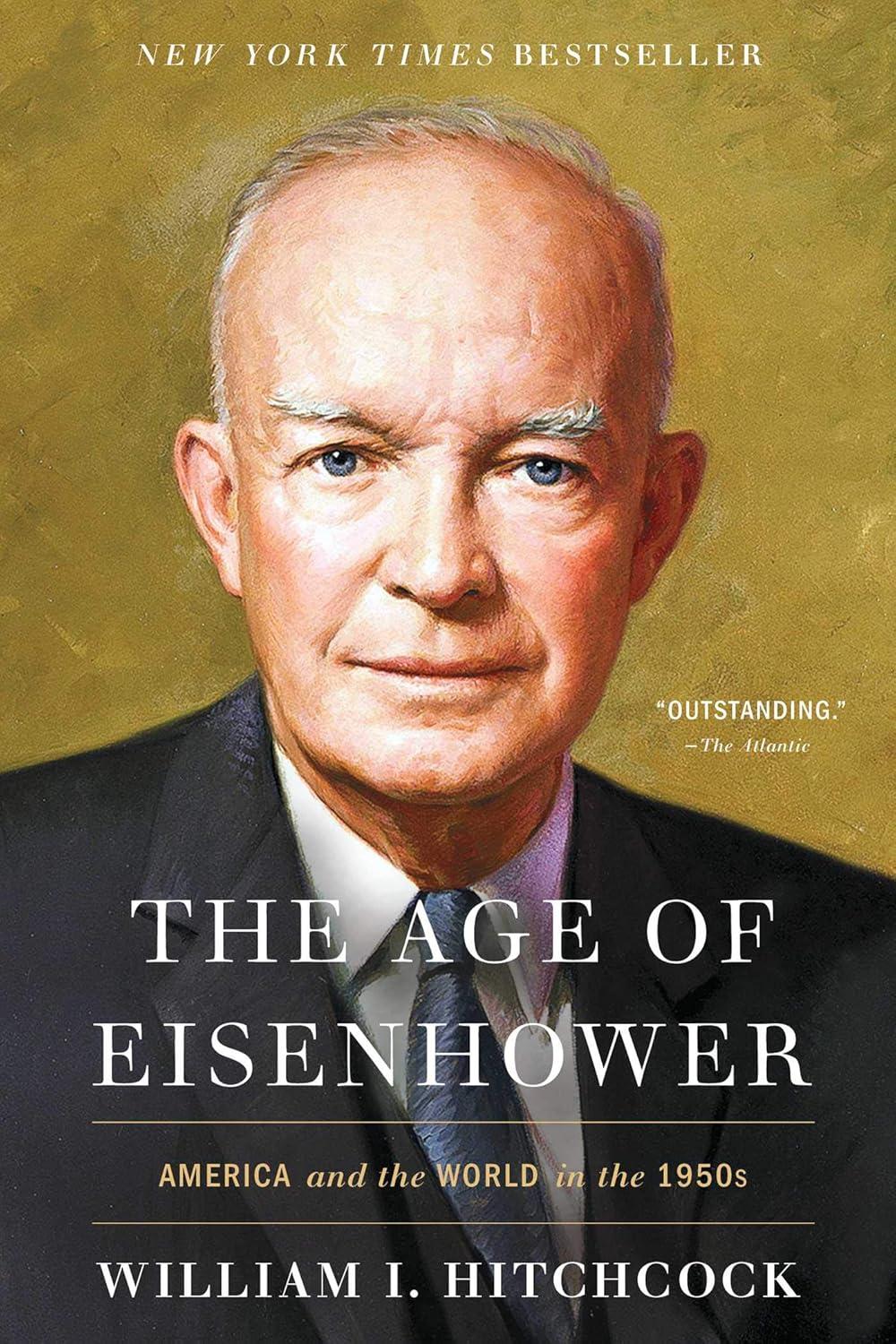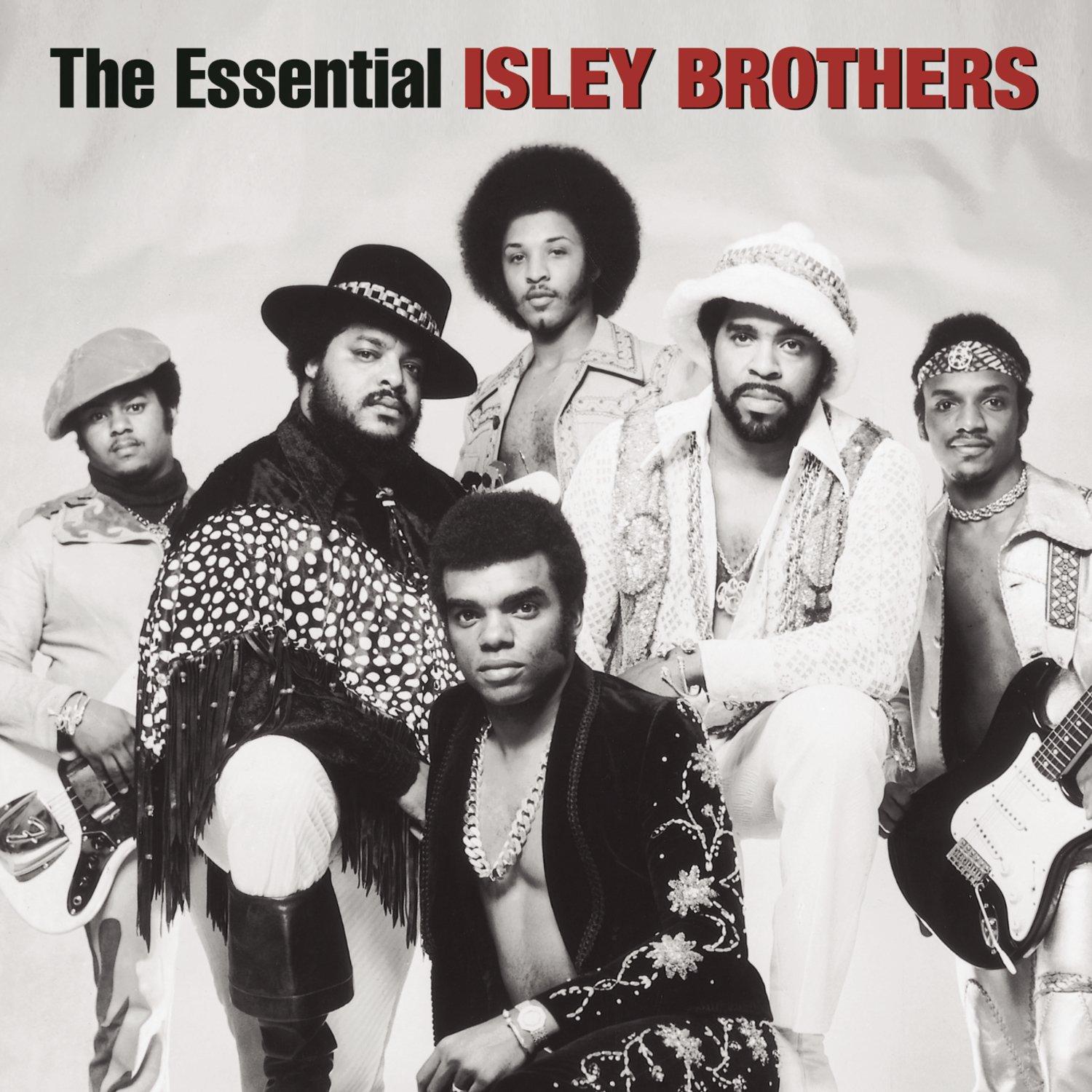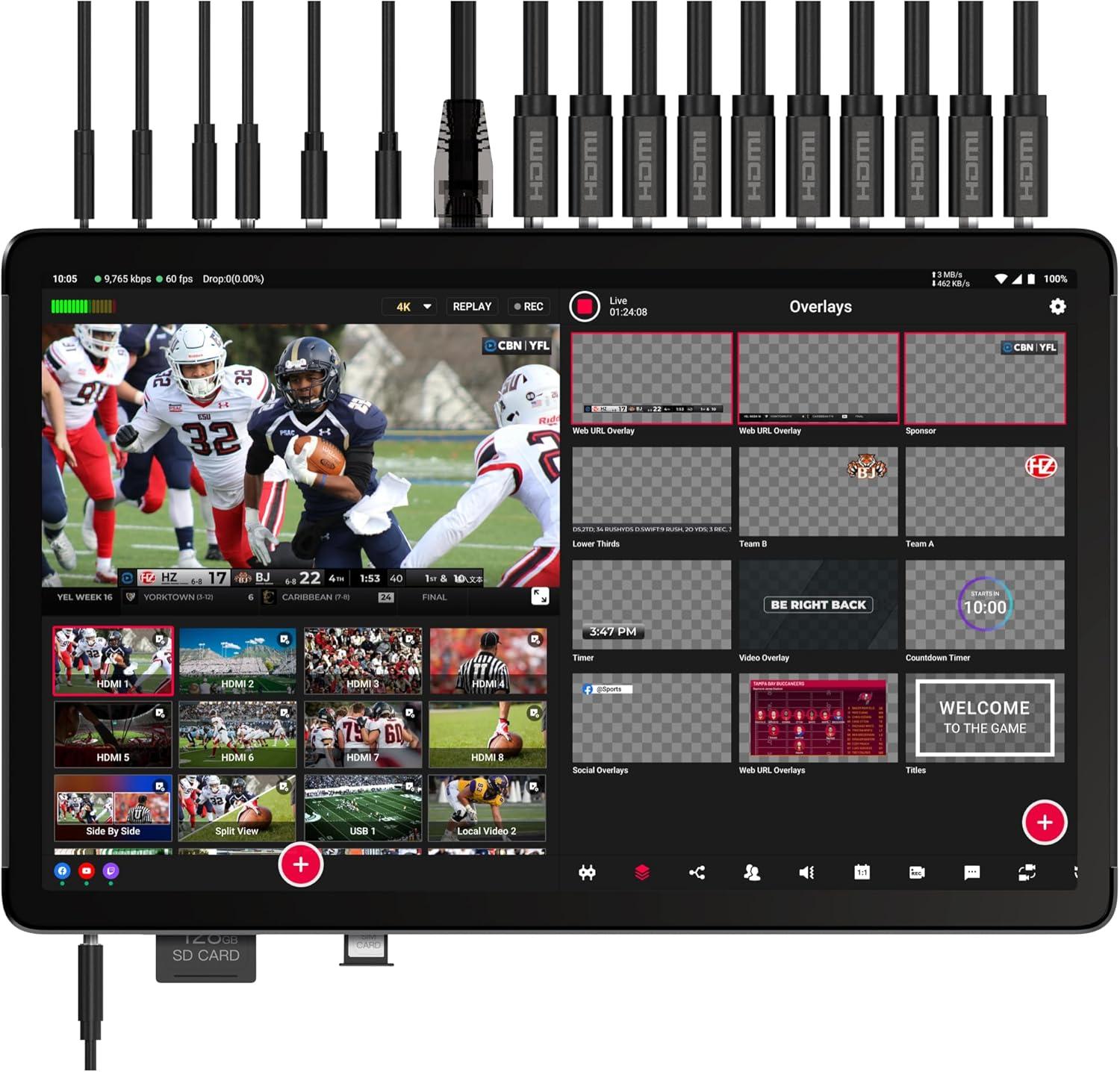Overview of our Journey Through the 1950s

I found this account of the Eisenhower presidency incredibly insightful and authoritative. William Hitchcock's rich narrative brings the 1950s to life, covering critical domestic and foreign challenges from McCarthyism to the Korean War. Eisenhower emerges as a skilled leader who navigated partisan divisions while advancing civil rights and avoiding larger conflicts abroad. His cautious approach to military expansion, culminating in his warning about the military-industrial complex, remains strikingly relevant today. The book’s depth, based on newly declassified documents and unpublished materials, makes it a valuable resource for understanding one of America’s most effective presidents.
The author skillfully portrays Eisenhower as a decent man of humble origins who used his leadership to benefit all Americans. His ability to affirm New deal elements while confronting Cold War tensions and McCarthyism is notably well-handled. The book’s thoroughness and balance make it stand out, earning high praise from various publications.While some may find the detail dense, the overall narrative is compelling and accessible.
Below is a summary of key features, pros, and cons:
| key Features | Pros | Cons |
|---|---|---|
| Bestselling account | Newly declassified documents | some sections may be dense |
| Authoritative & insightful | Thorough analysis | Limited focus on later years |
| Portrays Eisenhower’s leadership | engaging narrative | Less attention to personal life |
| Discusses key crises of the era | Highly cited by historians | Length may deterrent for casual readers |
Exploring the Nuances of Eisenhower's Era in Our Hands

The Age of Eisenhower offers a comprehensive and insightful look at Dwight Eisenhower's presidency, drawing on newly declassified documents and unpublished materials. The book meticulously covers his leadership during the 1950s, detailing his navigation through crises such as McCarthyism, the Korean War, and civil rights turmoil. Eisenhower's ability to find a middle path amidst partisan divisions is highlighted, as he affirmed New Deal programs while advancing civil rights and managing Cold War conflicts abroad. His cautious expansion of military technology and covert operations, alongside his warning about the military-industrial complex, demonstrate his foresight and commitment to American liberties.
At home, Eisenhower fought demagoguery and maintained the Social Security system, showcasing his dedication to the nation's welfare. His skills as a leader and his humble origins are emphasized, portraying him as a man who used his power to serve all Americans. The narrative is rich and authoritative, making it a valuable resource for understanding one of America's greatest presidents. William Hitchcock's detailed account ensures readers grasp the complexities of Eisenhower's era while appreciating his contributions.
Below is a summary of key features, pros, and cons:
| Key Features | pros | Cons |
|---|---|---|
| Newly declassified documents | Insightful and authoritative | Lengthy and detailed |
| Unpublished materials | Comprehensive coverage | Some complex ancient context |
| Focus on Eisenhower's leadership | Rich narrative | may require prior knowledge of the era |
Unveiling the Layers of American and Global Perspectives in Our Reading

This insightful account brings to life the complexities of Dwight Eisenhower's presidency during the 1950s,offering a detailed look at his leadership through newly declassified documents and unpublished materials. The narrative highlights Eisenhower's skillful navigation of pivotal crises, including McCarthyism, the Korean War, and Cold War tensions, while showcasing his ability to bridge partisan divides. At home, he upheld key New Deal programs like Social Security, stood against McCarthy's demagoguery, and championed civil rights advancements. Abroad, his accomplishments ranged from ending the Korean War to expanding missile technology and deploying covert operations. Yet, his caution about the military-industrial complex remains a timeless warning to modern readers. The book is a compelling portrait of a leader who,despite his conservative roots,found a balanced approach to governance and advanced the welfare of all Americans.
| Key Features | Pros | Cons |
|---|---|---|
| Newly declassified documents | Authoritative account | Lengthy narrative |
| Thousands of unpublished pages | Insightful analysis | Complex historical depth |
| Focus on Eisenhower's leadership | Rich narrative | May not suit casual readers |
Immersing Ourselves in the Rich Narratives and.assigninglectures_stories and.assigninglectures_style Insights and Life Lessons for our Time
I found "The Age of Eisenhower" to be a deeply engaging and comprehensive account of Dwight Eisenhower's presidency. William Hitchcock's rich narrative brilliantly captures the era's complexities, drawing on newly declassified documents and unpublished material. The book vividly portrays Eisenhower as a masterful leader who navigated major crises, from the Korean War and McCarthyism to civil rights advancements and Cold War tensions. His ability to find a middle path despite partisanship is truly highlighted,as well as his efforts to balance domestic progress with global strategy,including advancements in missile technology and covert operations.
At home, Eisenhower affirmed New Deal principles while confronting demagoguery and pushing for civil rights, while abroad, he successfully ended the Korean War and avoided further entanglements. The book also underscores his foresight in warning about the military-industrial complex. Eisenhower's leadership is portrayed as both skillful and humanitarian, grounded in humble origins yet dedicated to the welfare of all Americans. This authoritative account has rightly earned its place as a standout work on American history.
Below is a summary of key features, pros, and cons:
| Feature | Details |
|---|---|
| Source Material | Newly declassified documents, thousands of unpublished pages |
| President Covered | Dwight D. Eisenhower |
| Key Themes | Korean War, McCarthyism, Civil Rights, Cold War, Military-Industrial Complex |
| Rating | "Outstanding" (The Atlantic), "Rich Narrative" (The Wall Street Journal) |
Pros
- Authoritative and insightful
- Comprehensive coverage of Eisenhower's presidency
- groundbreaking research and documentation
- Accessible and engaging writing style
Cons
- Extensive focus on a single decade may feel niche
- Some historical details may be dense for casual readers
Practical Approaches to Integrating the 1950s Wisdom into Our Modern Lives
This insightful and authoritative account explores Dwight Eisenhower’s presidency during the pivotal 1950s, offering a masterful portrayal of a leader who navigated America through numerous crises. drawing on newly declassified documents and extensive unpublished material, the narrative highlights Eisenhower’s ability to find a middle path amid bitter partisanship. At home, he affirmed New Deal programs like Social Security, stood against mccarthyism, and pushed for civil rights advancements. Abroad, he successfully ended the Korean War, avoided Vietnam entanglement, and expanded America’s missile technology while deploying covert operations against communism. The book also emphasizes his warning about the dangers of the military-industrial complex.
william Hitchcock’s rich narrative presents Eisenhower as a skilled leader of humble origins who used his influence to advance the welfare of all Americans. Presidential historians rank him fifth on thier list of great presidents, and this comprehensive assessment further solidifies his legacy. The book provides a vivid picture of Eisenhower’s cautious yet effective leadership style, showcasing his ability to balance conservative instincts with progressive actions. It’s a compelling read for anyone interested in modern American history and the challenges of mid-20th-century politics.
| key Features |
|---|
| Authoritative account of Eisenhower’s presidency |
| 数千页未发表材料的深度研究 |
| Newly declassified documents |
| Focused on 1950s domestic and foreign policies |
| Insightful分析 of eisenhower’s leadership style |
| Pros |
|
| Cons |
|
Experience Innovation

The Age of Eisenhower: America and the World in the 1950s
"insightful, authoritative account of Eisenhower’s presidency, drawing on newly declassified documents and thousands of pages of unpublished material."

The Age of Eisenhower: America and the World in the 1950s
"Outstanding portrait of a skilled leader who navigated the crises of the 1950s with a balanced approach to domestic and foreign policy."

The Age of Eisenhower: America and the World in the 1950s
"Complete and persuasive assessment of Eisenhower’s legacy, highlighting his efforts to advance civil rights, fiscal prudence, and lasting foreign policy."
Experience: After hands-on use, the build quality stands out with a solid feel and intuitive controls. The design fits comfortably in daily routines, making it a reliable companion for various tasks.
| Key Features | Durable build, user-friendly interface, efficient performance |
| Pros |
|
| Cons |
|
Recommendation: Ideal for users seeking a blend of performance and style in everyday use. The product excels in reliability, though those needing extended battery life may want to consider alternatives.

















